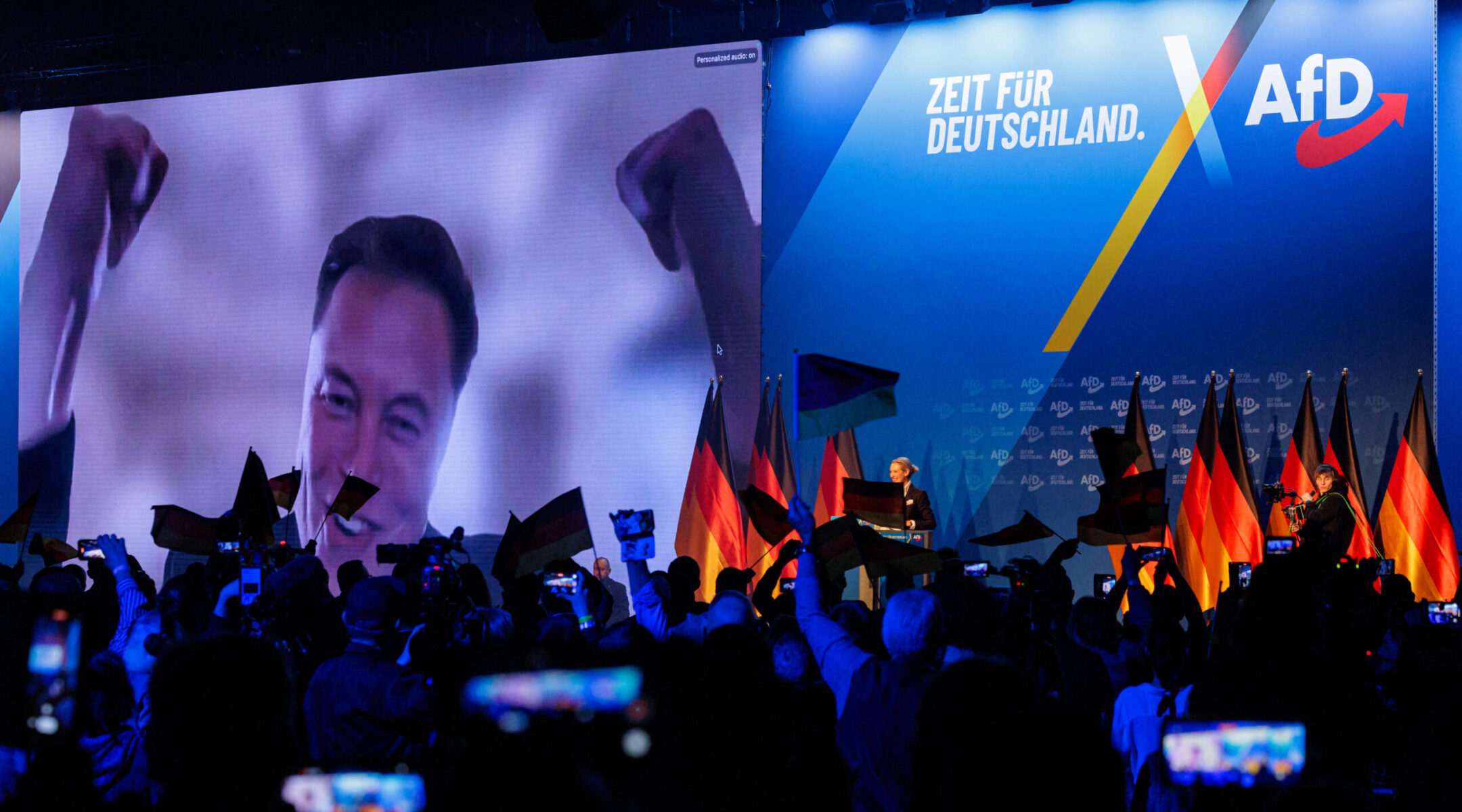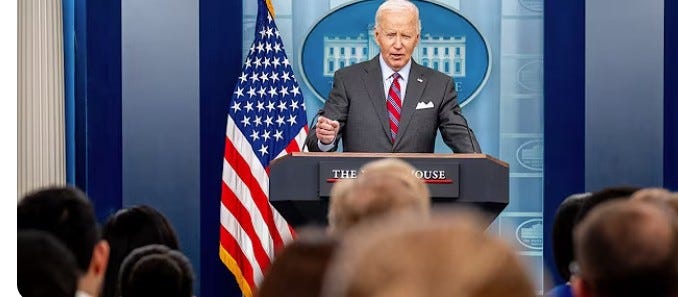Since February 1, eight pollsters have asked respondents for whom they will vote in a presidential race, not only including the major party candidates, but also independent presidential candidates such as professional conspiracy theorist Robert F. Kennedy Jr.
That’s eight too many. At this stage of the campaign, pollsters should not include Kennedy in their polls.
I am not saying this because I am a pundit who does not like Kennedy. (I don’t.) I am saying this because Kennedy’s inclusion misleads voters and journalists about the campaign.
President Joe Biden and former President Donald Trump have formally clinched their parties’ nominations. The two will be on the ballot in 50 states and the District of Columbia, and every registered voter will be able to vote for either candidate.
Today, we cannot say the same for Kennedy, let alone far-left activist Cornel West or whomever No Labels can scrape out of the barrel of political obscurity.
Simply announcing an independent presidential bid doesn’t merit inclusion in national polls. Over 400 candidates are in the presidential field, but pollsters routinely ignore the vast majority of them because they are not serious candidates who will get on most state ballots.
A slew of third parties have candidates as well, but as they have no track record of robust ballot access, they, too, get rightly ignored by polls. The exceptions are the Libertarian Party—which has achieved 50-states-plus-D.C. ballot access six times, including the last two presidential elections—and the Green Party—which, along with the D.C. ballot, notched 44 states in 2016 and 43 states in 2000. (The pandemic hampered signature gathering in 2020, leaving the Greens with only 29 state ballots plus D.C.)
The Libertarians and Greens routinely face more procedural hurdles than the Republican and Democratic parties and neither has nominated a candidate yet. Still, their track records are strong enough to warrant national polling mentions, especially once their nominations are set. Jill Stein is expected to score her third Green nod while the Libertarian race is up in the air.
Kennedy, West, and No Labels have no such track record, and what we’ve seen of their operations does not instill confidence.
Kennedy is only certified in three states—Hawaii, New Hampshire, and Utah—and claims to have sufficient signatures for Nevada. His campaign had hoped an affiliated Super PAC, American Values 2024, could get him on the ballot in 11 more states. But in February, the Democratic National Committee filed a formal complaint charging illegal coordination between the Super PAC and the Kennedy campaign. This week, American Values 2024 announced, “We are no longer collecting signatures in any additional states.”
American Values 2024 claims to have gathered enough signatures in Arizona, Georgia, Michigan, and South Carolina before standing down. However, the Kennedy campaign’s online ballot access tracker does not include those four in its list of states where petitioning has been completed. (While it’s common for campaigns to submit double the minimum amount of signatures because some are inevitably invalidated, American Values 2024 did not meet that threshold in Michigan and South Carolina.)
West is on the ballot in four states—Alaska, Oregon, South Carolina, and Utah. For three of the four, West was nominated by state-based third parties, not by his own signature-gathering. His ability to secure broad access is highly questionable, considering his campaign has only $103,000 in the bank. (Kennedy’s campaign has a little under $5 million on hand and has been spending money almost as fast as it comes in.)
Both Kennedy and West have time to accelerate their efforts, but their slow start starkly contrasts with the last independent candidate to achieve coast-to-coast ballot access: Ross Perot.
On February 20, 1992, Ross Perot, asked by CNN’s Larry King if he’d run, spoke directly to the audience and said, “If you’re that serious…you register me in 50 states.” The only-if-you-make-me bit worked, and thousands of volunteers began doing the hard work of putting the Texas billionaire on the ballot.
According to an edition of Ballot Access News from April 1992, “petitioning didn’t begin for [Perot] until mid-March.” In slightly over a month, enough signatures were gathered—well above the minimum—to qualify for ballot access in 15 states. Organizers didn’t rush to submit their petitions. As a flex, they kept collecting signatures, hoping to break records. Kennedy and West announced their independent bids in October 2023, five months ago, and aren’t anywhere near Perot’s benchmark.
By July 1992, when Perot said he was withdrawing because the Democratic Party had been “revitalized,” he had secured ballot access in 25 states. While dormant, he quietly funded signature-gathering efforts through the summer of 1992 and notched his 50th state in September, just before he re-entered the race. He polled high enough to be the first third-party candidate to join the presidential debates since 1980.
As a new party, No Labels is on the ballot in 16 states, less than halfway to its goal of 33. The self-styled bipartisan group expects the eventual candidate to handle the remaining 17.
But momentum has ground to a near-halt. Potential big names like Senator Joe Manchin, the West Virginia Democrat, and former Maryland Governor Larry Hogan, a Republican, declined to run on a No Labels ticket. In the ballot access race, No Labels only gained one state, Montana, in February and hasn’t picked up any new ones since. (Compare that to the Green Party’s subpar effort in 2020, which still secured 22 states by mid-April.) One No Labels official, in an interview with Politico, sought to blame state bureaucracies for the slow pace, but an anonymous source with “direct knowledge” said the culprit is “incompetence day after day” at No Labels itself.
Kennedy and West are reportedly close to a vice-presidential pick—a necessary condition for ballot access in several states—and No Labels plans to announce its full ticket soon. But the names are not expected to be impressive.
According to The New York Times, Kennedy has approached several people such as failed presidential candidates Tulsi Gabbard, Rand Paul, and Andrew Yang, anti-vaccine football player Aaron Rodgers, and former wrestler-turned-governor-turned-conspiracy-theorist Jesse Ventura. Citing anonymous sources, the Times reports, “All have turned him down, or their conversations have not advanced, except for Mr. Rodgers and Mr. Ventura.”
After several prominent moderates who have served as governors or senators turned No Labels down, The Wall Street Journal reported that former Georgia Lieutenant Governor Geoff Duncan was under consideration.
These are all fundamentally unserious prospects. Rodgers and Ventura are bona fide kooks. Duncan is not crazy—he is an anti-Trump Republican—but a Lieutenant Governor is not presidential material. No one has gone directly from the largely impotent post to the White House.
These ragtag efforts should prompt pollsters and journalists to treat these campaigns with even more skepticism. Unfortunately, political reporters love color and drama even where there is none.
The Times reaction to the possibility of a Kennedy-Ventura or Kennedy-Rodgers ticket was that either “could add star power and independent zeal to Mr. Kennedy’s outsider bid.” The proper reaction should be that either would confirm that Kennedy could only find a fellow kook to join his money-burning operation.
Of course, we are now forever cursed by the Donald Trump standard. Since an unqualified celebrity crackpot won the presidency once, the media can’t easily dismiss future unqualified celebrity crackpots.
Fair enough. But pollsters can conclude that candidates who have not proved they are poised to be on the ballot in most of the country or the major swing states do not deserve mention in national polls, which get picked up by national political reporters and strongly influence media narratives. Including independent or third-party candidates with embryonic campaigns in polls sends a falsely legitimizing message to voters that such candidates are of similar stature and viability to the major party candidates.
If a 50-state threshold is too high a bar to clear—a few states are very tough to crack and can’t easily be completed until late summer or early fall—then let’s at least use some benchmarks from past campaigns for deciding when inclusion in polls has been earned.
If a candidate hits 25 states at any point by the summer, like Perot, that indicates a campaign is on the right track. Give them their due in summer polling.
But without 40 states by September—slightly less than what the Green Party has been capable of accomplishing—too many voters won’t be able to vote for that candidate by Election Day to merit mention in the final stretch of national polls.
Until these candidates have earned inclusion, pollsters should not give them an in-kind contribution.











